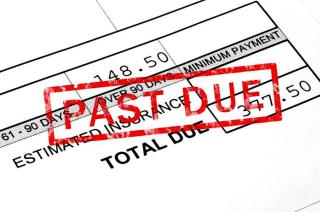|
Article Courtesy of Consumer
Affairs
By Mark Huffman
Published August 9, 2014
It began with a dispute between a Michigan condominium owner and the homeowners' association (HOA) over an unpaid assessment. By the time it reached the U.S. 6th Circuit Court of Appeals, it had become a case that may have significantly strengthened consumers' rights under the Fair Debt Collection Practices
Act(FDCPA).
The homeowner, Camille Haddad, and a debt collector, Alexander,
Zelmanski, Danner & Fioritto, had sued one another since 2008 over an unpaid HOA assessment – originally $55 – that over the years ballooned to well over $1,000.
Haddad expressed willingness to pay the debt but did not know what it was for, and demanded verification from the debt collector that the debt was real. Haddad cited the FDCPA in making this request, since the law specifically says the debt collector must provide verification of the legitimacy of the debt. |
|
|
Defining terms
But what constitutes “verification?” Up until now the courts have been a bit hazy on this point, but have leaned toward giving the benefit of the doubt to the debt collector. In 1999, when the 4th Circuit Court of Appeals took up a similar case, it ruled:
“[V]erification of a debt involves nothing more than the debt collector confirming in writing that the amount being demanded is what the creditor is claiming is owed; the debt collector is not required to keep detailed files of the alleged debt.”
In other words, a debt collector could simply take the original creditor's word that the debt was real. If the creditor put in writing that the debt was real, the collector had to provide no other proof.
Hollywood video case
In 2010, when Hollywood Video entered bankruptcy and began liquidation, it turned over thousands of accounts to debt collectors, who began calling former customers demanding payment for late charges. The collector offered no proof the debt was real, other than the fact that Hollywood Video said it was. Most of the customers angrily disputed it.
Though the Hollywood Video case was eventually settled with the intervention of state attorneys general, this interpretation of FDCPA enabled rampant abuses in the debt collection industry.
Debt collectors were able to buy bad debt – debt that had been written off the original creditor's books – for pennies on the dollar. They could then begin aggressive collection efforts without having to prove the debt was real, or wasn't the result of a mistake, such as sloppy bookkeeping.
Turning tide
In its ruling last month, the 6th Circuit Court appears to have put the burden of proof back on the debt collector. In the Haddad case, the collector sent an itemized accounting of the debt but the homeowner disputed a small portion of it for which there was no documentation.
In hindsight, if the collector had agreed to Haddad's demand that the $55 be stricken from the amount owed, the case would likely not have reached the appeals court. Because it did, and the court ruled the way it did, buying old debt and trying to collect it from consumers may be a lot less profitable in the future.
Crux of the case
The 6th Circuit Court has ruled that the previous definition of “verification” was unfair because Haddad was not given enough information to “sufficiently dispute” the debt and was left with only two options – pay money he didn't think he owed or face a lien on his condo.
“Such verification cannot be enough under the FDCPA, a statute intended to protect consumers,” the justices wrote. “The verification provision must be interpreted to provide the consumer with notice of how and when the debt was originally incurred or other sufficient notice from which the consumer could sufficiently dispute the payment obligation.”
That's the money quote for consumers. That turns the tables in their dealings with debt collectors.
The court notes that this information doesn't have to be extensive. It should provide the date and nature of the transaction that led to the debt, such as a purchase on a particular date, a missed rental payment for a specific month, a fee for a particular service provided at a specified time, or a fine for a particular offense assessed on a certain date.
|
